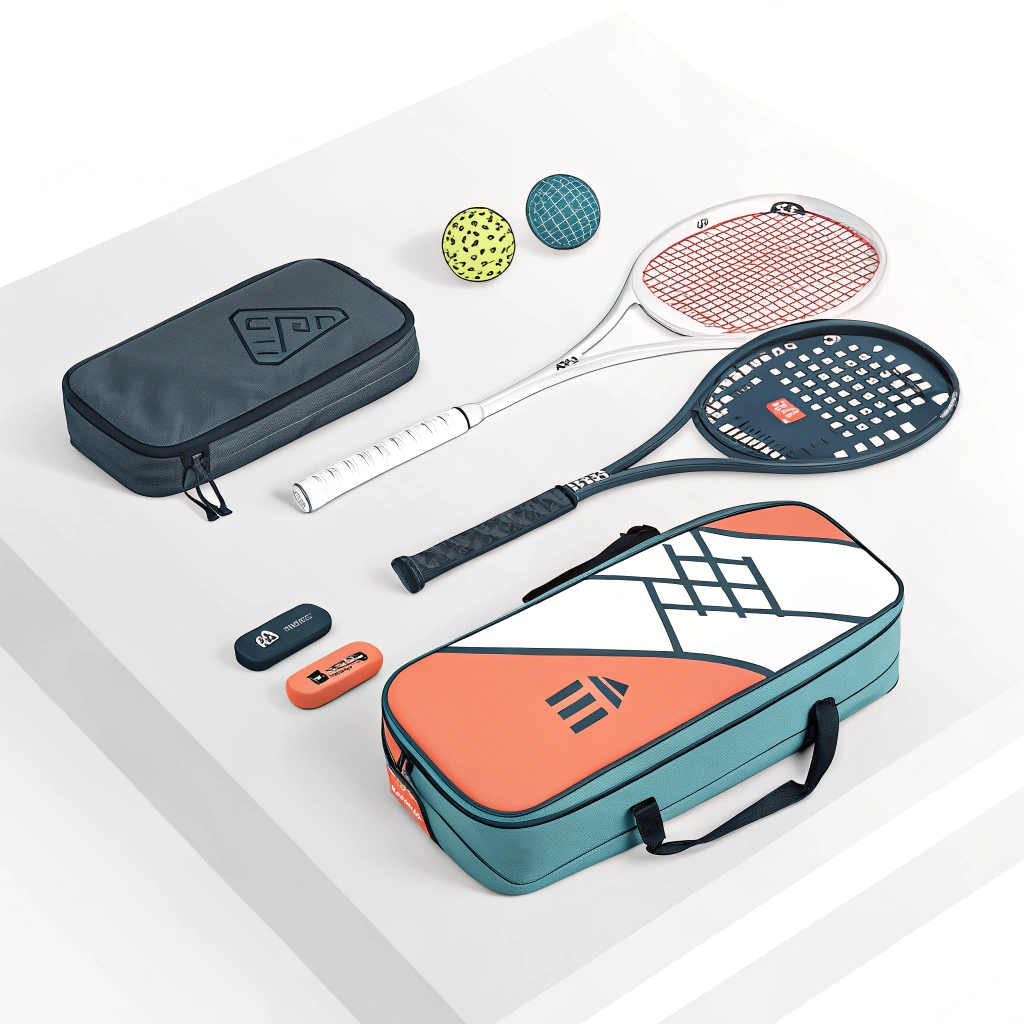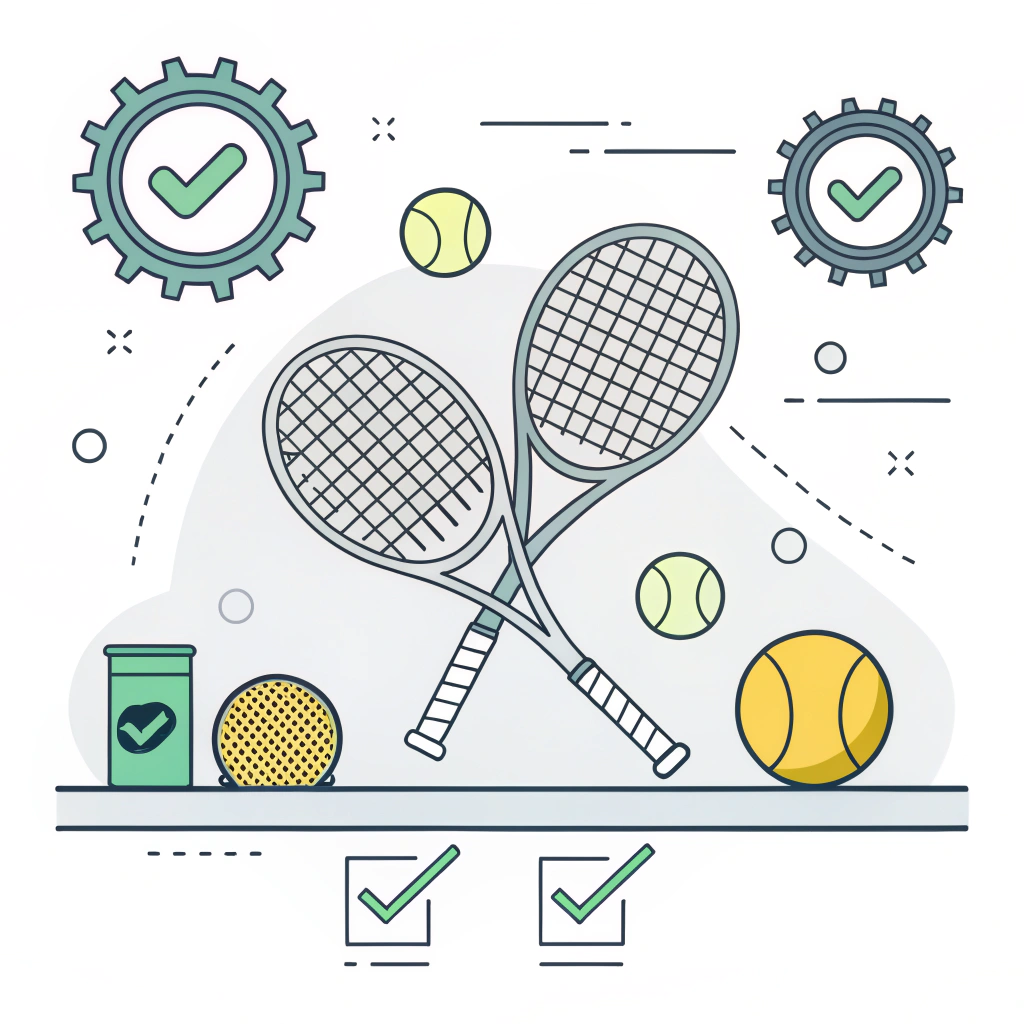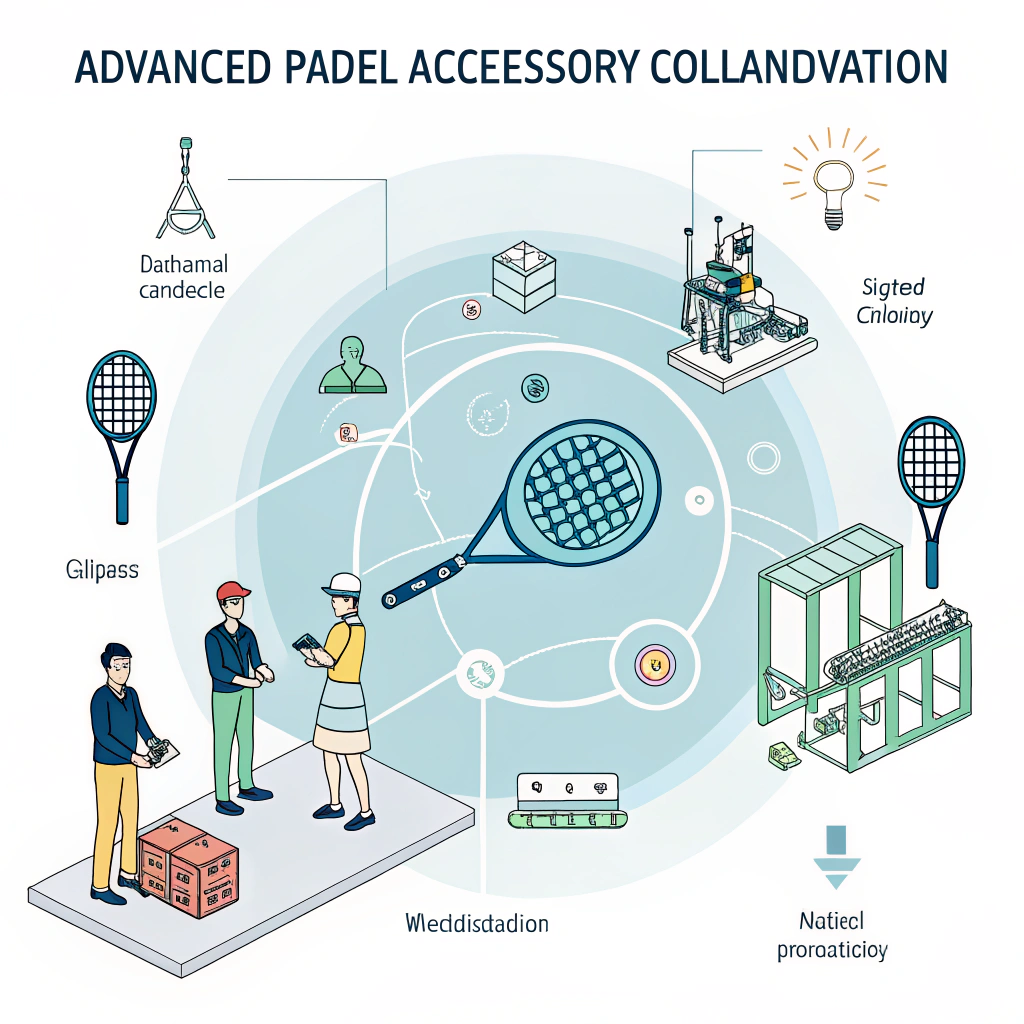The emerging niche in padel accessories and beyond is transforming the market, offering B2B procurement managers new ways to diversify their portfolios with innovative, customizable, and quality-driven products. In this article, we explore the trends driving these niche markets1, examine advanced manufacturing techniques2 and supplier capabilities, and provide actionable insights for sourcing the right products to meet evolving consumer demands.
The padel industry is experiencing rapid growth, and with this success, many companies are looking to expand their product lines beyond traditional padel rackets and balls. Padel accessories such as custom hand grips, personalized racket covers, branded carrying cases, and even tech-enhanced training aids are emerging as valuable niche markets. These products provide distributors a competitive edge and a way to capitalize on evolving consumer preferences.
Recent market data indicates that innovation and customization are at the forefront of these emerging trends. Manufacturers are investing in advanced production techniques—from 3k, 12k, and 18k carbon fiber3 technologies to precision molding—to ensure that every accessory not only meets but exceeds quality standards and performance metrics. As a result, sports equipment distributors can now offer tailored solutions that align with both performance enhancement and brand differentiation.
One of the most significant factors behind the surge in niche padel accessories is the evolution of advanced manufacturing techniques. Companies like NEX Padel utilize state-of-the-art production methods to produce high-performance products. This includes using high-grade materials such as 3k, 12k, and 18k carbon fiber3 in padel rackets and extending that precision to accessories.
| Feature | Description | Benefit |
|---|---|---|
| Custom Printing | Unique logos, graphics, and colors printed on products. | Brand differentiation |
| Hand Grip Personalization | Options for varied textures and colors, including custom logo imprints on hand grips. | Enhanced user experience |
| Racket Cover Designs | Tailor-made designs that match the brand’s aesthetic while providing superior protection. | Increased product appeal |
| Accessory Material Choice | Options ranging from quality plastics, textiles to composite materials for durability and performance. | Wide range of applications |
These options allow distributors and brands to tailor their accessory offerings to meet specific market demands effectively. Customization not only builds brand recognition but also improves customer loyalty since personalized products resonate more strongly with end-users.
Manufacturing processes have become so sophisticated that most companies offer a full range of customization solutions—from production samples to rapid turnaround times. This efficiency in production means that distributors can quickly adapt to market trends without compromising on quality.
As innovation in padel accessories increases, so does the need for reliable supplier quality management. At NEX Padel, we stand out by integrating rigorous quality control4 checks throughout our production process. Our approach ensures that every product meets internationally accepted standards for durability and performance.
Quality control in this niche market involves several critical steps:
- Material Verification: Testing raw materials to ensure consistency in strength and flexibility.
- In-Process Inspections: Frequent quality checks during manufacturing, including precision measurement and stress testing.
- Final Product Testing: Comprehensive testing on finished products, with particular attention to customization features such as printing and grip textures.
- Continuous Improvement: Collecting customer feedback to enhance product quality over time.
By maintaining robust quality control systems, suppliers not only fulfill quality criteria but also build trust with procurement managers seeking excellence and reliability.
For procurement managers evaluating suppliers in the emerging niche market, several strategic considerations become important:
In the competitive sports equipment distribution landscape, timely delivery is crucial. Suppliers who demonstrate a fast turnaround—especially for custom orders—can help distributors seize new market opportunities quickly without facing supply chain bottlenecks.
A supplier with a diverse product line, encompassing both traditional and niche items, provides a strategic advantage. For instance, alongside high-performance padel rackets, a partner that offers a range of accessories like customized hand grips and branded padel balls allows distributors to experiment with new revenue streams without overhauling existing operations.
Advanced manufacturing techniques not only enhance the quality of accessories but also facilitate design flexibility. Technology integration in manufacturing processes leads to efficient production runs, reduced error rates, and the ability to produce small batches for market testing.
In any B2B procurement decision, cost management is essential. Leading manufacturers like NEX Padel have optimized their production processes to provide cost-effective solutions without sacrificing product integrity. Through strategic sourcing and economies of scale, distributors can benefit from competitive pricing that keeps their offerings attractive in the market.
A summarized comparison of these factors can be seen in the following table:
| Strategic Consideration | Importance | NEX Padel's Approach |
|---|---|---|
| Reliability | Timely delivery and sample production | Fast turnarounds and rigorous control steps |
| Product Diversification | Offering innovative and customizable products | Wide range of accessories coupled with core products |
| Technological Integration | Enhances customization and accuracy | Advanced production techniques using carbon fiber and more |
| Cost-Effectiveness | Maintaining competitive pricing in a growing market | Optimized processes and strategic partnerships |
A practical example of successful diversification is seen in the collaboration between leading sports brands and manufacturers. One notable case involves a distributor who, after partnering with a high-performing manufacturer, expanded their product line to include a series of custom-printed hand grips and bespoke padel balls. By leveraging the manufacturer’s advanced customization capabilities, the distributor not only reinforced their market presence but also attracted new customer segments looking for personalized sporting gear.
Real-world data from similar projects indicate that companies offering customized accessory lines have observed a 15-20% increase in sales within the first year. Such figures highlight that investing in niche product diversification can yield substantial long-term benefits.
Another case involves a company that decided to implement a complete rebranding of its padel ball series, integrating both quality improvements and custom design elements. This move significantly boosted their market competitiveness against off-the-shelf products, proving that strategic product innovation can redefine market positioning and drive higher margins.
The current trends in padel accessories are not just temporary; they represent an industry-wide shift towards higher levels of innovation and customer-centric design. With the rising popularity of padel globally, distributors are increasingly seeking products that offer both performance enhancements and distinct customization options to stand out.
- Increased Consumer Demand: The expanding padel community, comprising both amateur and professional players, now demands equipment and accessories that reflect individual style and performance needs.
- Technological Progress: Continued advancements in manufacturing technology offer manufacturers the ability to innovate continuously and produce products with finer detail and longer durability.
- Global Market Integration: As padel becomes more international, emerging markets in regions like Asia and South America are expected to drive further growth in niche accessories.
- Collaborative Partnerships: Strategic collaborations between manufacturers, distributors, and technology providers are key to developing products that meet the exacting standards of modern players.
NEX Padel is positioned strategically to lead in this advanced product niche. Our extensive experience in padel manufacturing—covering everything from standard products to full customization—allows us to serve as a reliable partner for brands looking to innovate and expand. Our infrastructure supports the entire production process, ensuring that every accessory meets the high-performance criteria required by pro-level athletes and avid padel enthusiasts alike.
For procurement managers and product strategists evaluating entry into the niche market of padel accessories, the decision should be based on:
- Supplier Reliability: Confirm the supplier’s history of on-time delivery and product consistency.
- Customization Breadth: Evaluate the variety and extent of customization options available to match consumer market trends.
- Quality Assurance Processes: Look for manufacturers who maintain rigorous quality control throughout their production cycle.
- Market Adaptability: Assess the supplier’s flexibility in handling both large-volume orders and custom, niche products with rapid turnaround times.
- Strategic Pricing: Ensure that cost structures align with projected ROI and overall business strategy.
By addressing these strategic checkpoints, sports equipment distributors can not only expand their product offerings but also establish a competitive advantage in a rapidly evolving market.
In summary, emerging niche markets in padel accessories provide exciting new revenue opportunities for B2B distributors. The convergence of advanced manufacturing, high customization capabilities, and a growing consumer base is fueling innovation across the industry. As distributors, your next steps should include:
- Evaluating your current product portfolio to identify gaps that niche accessories can fill.
- Partnering with reliable manufacturers who demonstrate strong quality control and advanced production capabilities.
- Staying informed on market trends and consumer preferences to ensure your offerings remain relevant and competitive.
- Testing new product lines in controlled markets to gauge consumer response and optimize your offerings accordingly.
By embracing these strategies, you can position your business at the forefront of padel innovation and secure long-term growth in a dynamic market landscape.
Q1: What emerging accessories are popular in the padel market?
A1: Emerging accessories in the padel market include customizable hand grips, personalized racket covers, tailored padel ball designs, and innovative training aids. These products focus on innovation, customization, and performance enhancement.
Q2: How do manufacturers ensure the quality of custom padel accessories?
A2: Manufacturers ensure quality by integrating rigorous quality control measures, including material verification, in-process inspections, and final product testing. Advanced production techniques and continuous feedback loops are key to maintaining high standards.
Q3: What customization options can distributors expect from padel accessory suppliers?
A3: Distributors can expect various customization options such as custom printing for logos and graphics, personalized hand grip designs, tailored racket cover designs, and specialized material selections that improve both functionality and aesthetics.
-
niche markets: Click to delve into the dynamics of niche markets, including how they offer specialized opportunities for growth and competitive differentiation in the B2B landscape. ↩
-
advanced manufacturing techniques: Click to learn more about the modern production processes that enhance product design flexibility, improve efficiency, and support innovation in manufacturing. ↩
-
3k, 12k, and 18k carbon fiber: Click to explore detailed insights into carbon fiber grades and how these high-performance materials contribute to product durability and precision in sports equipment. ↩ ↩2
-
quality control: Click to understand the comprehensive quality management processes that ensure products meet strict industry standards and maintain consistent performance. ↩
-
Technological Integration: Click to discover how integrating modern technology into manufacturing processes leads to improved accuracy, efficient scaling, and enhanced product customization. ↩







